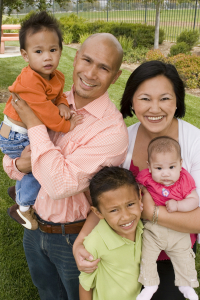
”Do you teach values?” a telephone caller asked.
Back in the early 90’s parents were upset that values were being taught in school. Controversy brewed and bubbled.
Do you teach values? The question caught me off guard. How can you not teach values, I thought, because of the very nature of values? Whether we are aware of it or not, we assign value to everything in our lives.
What we prize the most, what we give the most time to or put the most money towards–those decisions create our values.
Values, according to the American Heritage Dictionary, are ”principles, standards or qualities considered worthwhile or desirable.” As a verb, value can mean ”to rate according to a relative estimate of worth or desirability.”
It seems a logical conclusion that we have values because we rate some qualities higher than other qualities. We cannot not possess values.
Being aware of what we value highly can help us make informed decisions, be it a complicated moral decision or as simple as choosing what kind of ice cream we’ll pick out of the freezer.
Many people see values tied to religion and are concerned that teaching values in our schools is the same as teaching religion.
At one time or another, consciously or unconsciously, most of us take the time to consider what is most precious to us and what items we can do without. In this thinking process we can assign value or importance to ideas, relationships or every item in our lives.
When we can articulate what we value the most, we empower ourselves to be more effective in our lives and relationships with others.
In Teaching Your Children Values Linda and Richard Eyre have a 12-month plan to introduce a principle every month. Each principle includes teaching methods to use with your preschooler, elementary-aged child or adolescent. The Eyres recommend discussing a specific value for each month of the year, then starting the process over again, as different circumstances will fuel the learning and discussion process each year.
The Eyres divide these 12 principles into two major categories: The Values of Being and the Values of Giving.
The Values of Being begin with the development of an internal quality or attitude that determines how we behave and interact with others. These principles include honesty, courage, peacefulness, self-reliance and potential, discipline and moderation, and fidelity and chastity.
The Values of Giving are qualities we offer to others and determine our character. Loyalty and dependability, respect, love, unselfishness and sensitivity, kindness and friendliness, and justice and mercy belong to this group of values.
The principles and teaching tools the Eyres recommend can act as a starting point in helping guide your children to understanding what they value in life. Perhaps working with your children on values will clarify your own beliefs.


HI Maren,
This article is very interesting and I’m interested in sharing the 12 month plan with the families at my school. Can you share more information?
Marla,
The Eyre’s book,Teaching Your Children Values, is an easy to implement program. Each value has activities to do with preschoolers, elementary aged children and adolescents.
Link to the book here.